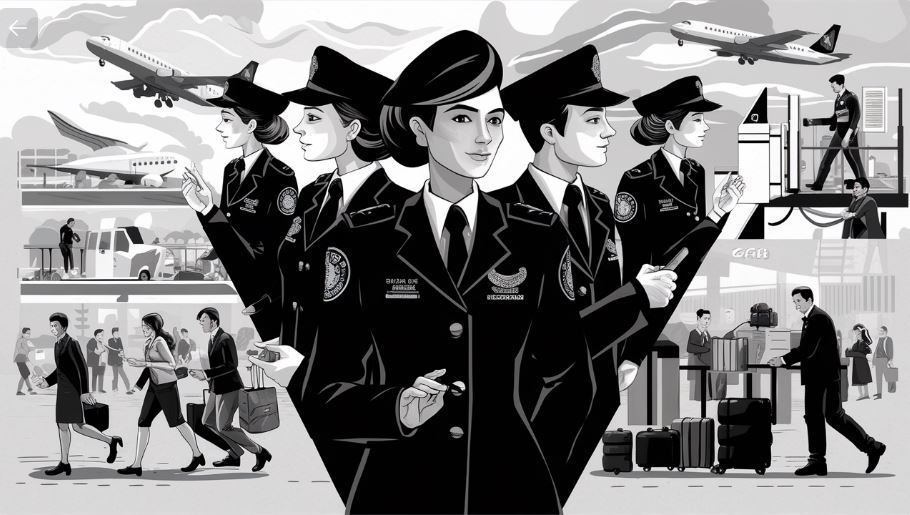What Are Aviation Security Service Providers?

Introduction
In an era defined by globalization and unprecedented air travel, ensuring the safety and security of aviation is paramount. The aviation sector has seen significant transformations, not just in technology and infrastructure, but also in regulatory frameworks designed to counter emerging threats. Aviation security service providers have emerged as crucial players in this space, tasked with the responsibility of protecting passengers, crew, aircraft, and airport facilities. This article explores the pivotal role of these providers, the challenges they face, and the innovations that are shaping the future of aviation security.
What Are Aviation Security Service Providers?
Aviation security service providers encompass a variety of organizations that offer specialized services to protect civil aviation. These can include:
- Screening Services: This involves the inspection of passengers, baggage, and cargo to identify prohibited items. Advanced screening technology is commonly deployed to facilitate this process.
- Access Control Services: Providers help establish effective credentialing systems to control access to sensitive areas, including runways, terminal buildings, and restricted zones.
- Surveillance and Monitoring: The implementation of advanced surveillance systems, including CCTV and drone monitoring, is critical in ensuring real-time awareness of airport and aircraft security.
- Training and Consultancy: Many security service providers offer essential training programs for airport staff, flight crews, and law enforcement agencies, helping them to respond effectively to security threats.
- Cybersecurity Solutions: With the growing digitization of aviation operations, cybersecurity has become crucial. Providers offer solutions to protect against data breaches and cyberattacks targeting aviation systems.
The Evolving Landscape of Aviation Security
Emerging Threats
The post-9/11 era has seen a continually evolving threat landscape. Aviation security providers must stay ahead of sophisticated methods employed by terrorists and criminals. These threats include not only traditional hijackings but also the potential for cyberattacks, insider threats, and drones posing risks to airport operations. Security providers invest in intelligence gathering and threat analysis to stay informed about changing tactics.
Regulatory Compliance
Aviation security providers work in tandem with national and international regulatory bodies, including the International Civil Aviation Organization (ICAO) and the Transportation Security Administration (TSA) in the United States. Compliance with ever-tightening regulations and standards is essential, and failure to meet these requirements can lead to significant penalties, reputational damage, and compromised safety.
Passenger Experience
Balancing security with passenger experience is a constant challenge. Overzealous security measures can lead to long lines and frustrations, prompting many service providers to innovate with more efficient screening processes. This includes employing biometric technologies and automated systems to expedite security while ensuring thorough checks.
Innovations in Aviation Security
The future of aviation security relies heavily on technological advancements. Here are some key innovations that are shaping the industry:
1. Advanced Screening Technologies
High-resolution imaging systems, computed tomography (CT) scanners, and artificial intelligence (AI) algorithms are being integrated into security checkpoints to enhance screening capabilities. These technologies allow for automated detection of prohibited items while speeding up the boarding process.
2. Biometric Systems
The integration of biometric identification systems, including facial recognition and fingerprint scanning, is streamlining the passenger flow through airports. This not only enhances security by accurately identifying individuals but also facilitates faster processing during check-in and boarding.
3. Cybersecurity Measures
As aviation systems become increasingly digital, cybersecurity measures are being prioritized. Security service providers are investing in robust software solutions, penetration testing, and employee training to mitigate risks associated with cyber threats.
4. Data Analytics
Advanced data analytics enables security providers to identify suspicious patterns or anomalies in travel behaviors. This proactive approach allows for timely interventions and enhances overall security frameworks.
Challenges Ahead
Despite the advancements, aviation security service providers face numerous challenges:
- Budget Constraints: Investment in security measures can be costly. Some airports and airlines struggle to allocate sufficient budget for advanced security technologies and personnel training.
- Adapting to New Threats: Continuous evolution of threats necessitates ongoing research and development, which can be resource-intensive.
- Public Perception: Rebuilding trust in air travel and maintaining passenger confidence after security incidents is an ongoing struggle for the industry.
Conclusion
Aviation Security Service Providers are an essential pillar of modern air travel, tasked with the formidable challenge of safeguarding passengers and the aviation ecosystem from diverse threats. As the industry continues to evolve, embracing innovation and collaboration will be critical in overcoming challenges, ensuring regulatory compliance, and enhancing the passenger experience. As air travel continues to grow globally, the significance of effective aviation security service providers will only increase, making them indispensable allies in ensuring a secure and reliable travel experience for millions around the world.
Located : United Kindgom










